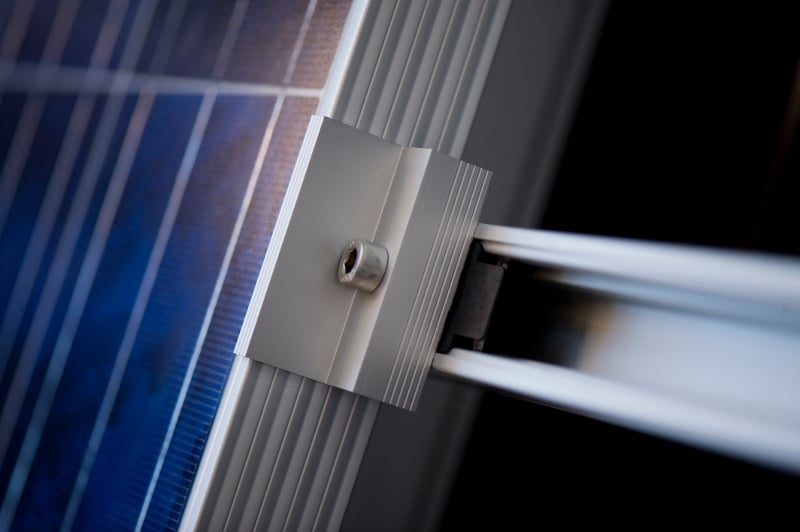
Aberla’s new leadership is targeting significant growth in both solar and storage markets, considering the former to be at grid-parity and the latter to be “on the cusp of a boom”.
Last week Aberla announced that it had appointed former Forest director Paul McCarren as its new managing director, coinciding with new investment and an imminent rebrand.
Speaking to Solar Power Portal, McCarren revealed that he had been poached by an investor in Aberla to take the contractor “to the next level”, with commercial-sized solar plants and other energy technologies, including battery storage, high on the agenda.
In his seven years at Forest, the energy division McCarren started grew to a business with around 250 staff and £30 million in turnover. McCarren said he wanted to replicate that kind of success at Aberla and had recruited some of his former staff to do so.
And solar will, predictably, play a “significant” role in Aberla’s future.
“PV was a big part of Forest Energy and it'll be a big part of Aberla going forward. We're talking to a number of large clients in the multi-megawatts stage at the moment,” he said.
This interest will be in both ground-mount and commercial rooftop projects, with McCarren insisting that subsidy-free projects are a distinct reality for the UK market at the moment.
“Everyone talks about grid parity. We feel that we're here now. With the price we can offer per kilowatt installed, clients [are] shown very good returns on their money,” McCarren said, adding his belief that ground-mount projects for corporate clients under certain circumstances can achieve payback periods of seven or eight years.
Solar’s cause, McCarren said, was being aided by utilities putting prices up across the board.
Aberla currently has a staff of around 20 individuals but expects this to increase to around 35, with further sub-contractors to be hired on a job-by-job basis.
Solar work will be supplemented by so-called ‘grid energy’ work, which Aberla classes as projects made either in support of the national grid or those which alleviate effects of grid constraints, charges or outages.
Placing battery storage and peaking plants in this category, McCarren said he felt the market was “on the cusp of a boom”.
“We're very close to either batteries or peaking plants taking off very rapidly. We're all jockeying and all our competitors are the same. It's not gone mainstream yet, but we're very close,” he said.
McCarren cited instances where large corporates had been quoted millions of pounds by DNOs to improve or expand on connections, or suffer from blackouts that cause periods of downtime that last long after the outage has been rectified.
“Some large users have had power outages that might only last a minute, but they cause processes to shut down. If you're a smelting factory you can't just turn those [processes] back on. Every time it goes down for a minute it takes 90 minutes or so to reboot, and millions of pounds in production are lost. These kind of people are going to look to be more self-sufficient moving forward,” he said.

